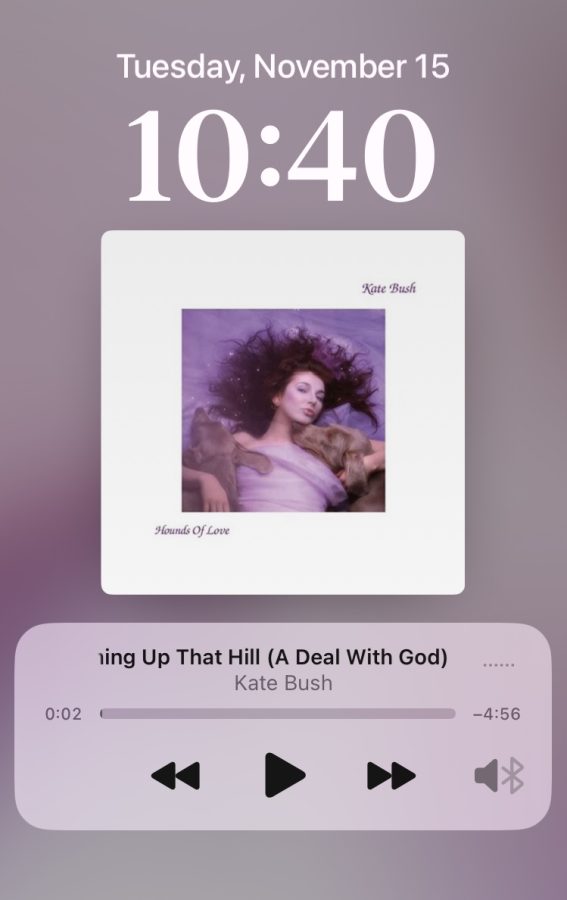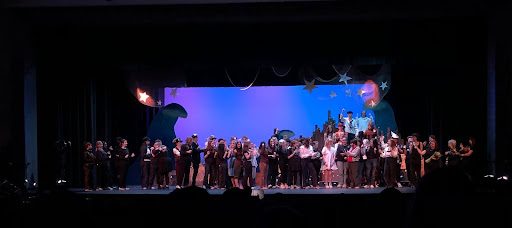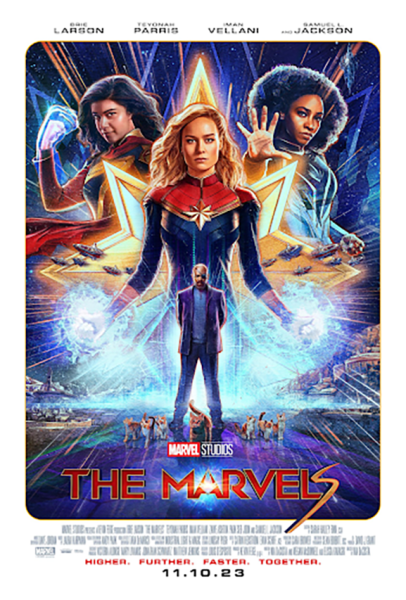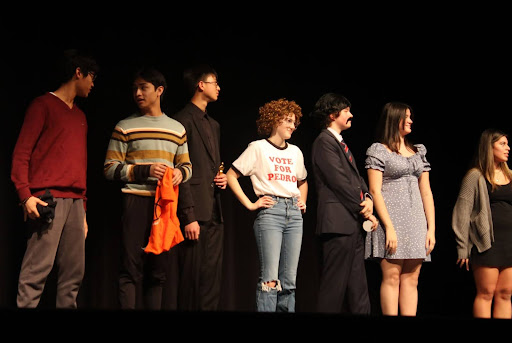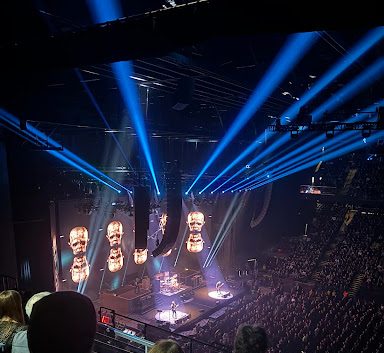Running up the charts: older music comes back into style
Photo courtesy of Whitney Moffa
According to the Official Chart Company, Olivia Rodrigo’s song “good 4 u” was the official UK Song of the Summer in 2021. Just one year later, Kate Bush’s 1985 song “Running Up That Hill” claimed the same title in 2022 after being featured in season 4 of Netflix’s Stranger Things.
Songs from previous decades and songs inspired by music from past generations have been topping charts over the past year. While some listeners believe this oldies revival is due to nostalgia, others believe it is due to a lack of originality in music today.
Generation Z has been the main age group bringing these types of songs back into pop culture, with the use of older music in popular TikTok trends, TV shows, and movies.
“Whatever generation is in high school is always going to be responsible in some part for bringing back a style. When I was in high school, we brought back the 70s,” said choir director Dustin Brandt. “[Generation Z] is responsible for bringing back the 90s.” Brandt also teaches AP Music Theory and sponsors the Songwriters Club.
The release of season four of Netflix’s “Stranger Things” brought about the most recognized example earlier this year. “Running up that Hill” by Kate Bush, a pop song released in 1985 that was featured in an episode of the show, re-entered the Billboard Hot 100 and broke into the top 10. Also featured in the season was the 1986 Metallica song “Master of Puppets,” which made its way back into the Billboard Hot 100.
“I wouldn’t have gotten to hear [‘Running Up That Hill’] if it weren’t for ‘Stranger Things’,” explained freshman Charlotte Jackson.
Brandt believes that cases like these, such as Kate Bush’s music gaining massive popularity after being released nearly 40 years prior, are going to continue to appear in pop culture.
“On a massive scale, part of me says that we have peaked creatively musically,” said Brandt. “I think you’re going to have really incredible albums come out, they’re going to go under the radar for a really long time, and they’re going to sustain and eventually get more mass appeal. It’s because TikTok [and] the media has such an influence over listeners.”
Although the surging popularity of older music is apparent, it is unclear whether the resurgence is a result of a lack of originality in newer music or purely due to nostalgia.
“I think that older music’s resurgence is because of nostalgia, and artists are incorporating old music and techniques into their new music. I feel like TikTok has had a huge influence on bringing old music back with its sounds and edits,” explained junior Mia Shannon.
Stylistic influences of songs from past decades on modern artists is often reflected in their work. Multiple songs off of Olivia Rodrigo’s 2021 album SOUR were heavily influenced by the late 1990s/early 2000s pop-punk style of artists such as Paramore and Avril Lavigne. This is similar to how Taylor Swift’s album 1989 was inspired by the synth sound of the late 1980s.
“I think there’s an infinite amount of song ideas, and artists are just being nostalgic,” said sophomore Grace Chapman.
Sampling, the process of taking a part of a previously released song and using it in a new song, has been used by artists to help them achieve top charting positions. Jack Harlow’s “First Class,” a 2022 No. 1 hit on the Billboard charts, samples the 2006 song “Glamorous” by Fergie ft. Ludacris, adding a 2000s influence to the song.
“I think sampling is a really cool way to express something in a different way. I think it’s unfair to say if you didn’t create it, you’re not being original. What do we create that’s original?” said Brandt. “Everything that comes in, is what inspires us. It is always coming from somewhere [and] it comes from something we’ve listened to.”
Junior Emily Kalata, Vice President of the Songwriters Club, has been influenced by growing popularity of music from the past in her own songwriting.
“As someone who does have a lot of love for songwriting and likes to pay attention to it in other songs, it does feel like a blessing and a curse. I find myself trying to make everything have a perfect rhyme pattern or ‘quirky’ wordplay, which, although [it] gives great payoff, can be tiring. I find myself asking if what I’m creating is even worthwhile, and trying to make my songs shorter for the ideal attention span of 30-second TikToks,” explained Kalata. “But I can’t lie and say that there’s not a part of me that enjoys seeing people make more songs that could’ve been written long ago.”
Seeing the revival of older music in the present day may be an indication as to how the future of the music industry will look.
“[The future of music] is going to continue to look borrowed. It’s going to continue to look inspired by these different decades, and artists are going to take the best of these decades and continue to re-spin them,” predicted Brandt.
Regardless of the reason for the revival of older music, the fact that people are engaging with music that is meaningful to them is all that matters.
“As long as you enjoy the media that you’re consuming, it shouldn’t matter when it was released,” said freshman Leah Kim.


